Euro Coop GA Honours Rochdale Pioneers 175th Anniversary
08.07.2019 13:36:27

The European consumer co-operative movement came together for the 2019 General Assembly on 19-20 June 2019 in Manchester, UK, hosted by Federal Retail and Trading Services (FRTS), UK and The Co-operative Group, UK. The annual meeting was coupled with a traditional thematic seminar on the theme of “Co-operative Governance – 175 Years after the Rochdale Pioneers” during which members had the opportunity to discuss and present case studies of successful co-operative governance and, in particular, member engagement. These events were organized within the framework of the UK Co-op Congress, which was held on 21-22 June in the same venue.
Statutory Business
The General Assembly’s focal points included a review of the Association’s activities for the past period, but more importantly a look to the future, both internally and externally. 2019 is a year of strategic importance due to the new mandate of the European Parliament and Commission, which calls for proactive high-level advocacy on behalf of consumer co-operatives. Members approved the Secretariat’s action plan for engaging EU policymakers, which places the priority on early action, as of September 2019, when the new Parliamentarians are expected to take their places. The direction will be provided by the Euro Coop EU Manifesto, which formulates our movement’s key policy recommendations in four categories – food policy, sustainability policy, retail growth and co-operative growth. These efforts shall be accompanied by external thematic events linked to issues high on the EU agenda within the remit of sustainability, food retail, and consumer affairs. The second half of 2019 and the first half of 2020 will prove vital for extending and strengthening the position and visibility of consumer co-operatives within the EU policy process and Euro Coop is intent on wasting no time.
Internally, members discussed collaboration in new areas, such as tourism, digitalization, and sponsorship through dedicated ad-hoc task forces. Ground-breaking progress was made in the discussion of co-operation in the area of sponsorship, where there is great potential stemming from the fact that most national members are already active within this field. Coop Norway will now lead the project, as they were the originator of the idea. Tourism is another area with significant potential for collaboration, as more than half of Euro Coop’s members are active in this field. Comarine Cyprus will take the lead in this initiative. Of course, digitalization is the great topic of the day, as the increasing use of technology has profound repercussions on retail and consumer behaviour. Members voiced the need to have a platform within Euro Coop for direct exchange on the successful examples, and challenges, of implementing higher use of digitalization in the retail process, as well as in the area of co-operative governance.
Thematic Seminar
The statutory business was followed by the seminar “Co-operative Governance – 175 Years after the Rochdale Pioneers”, which kicked-off with a keynote presentation by the Co-operative Group. It presented the Co-op Compass – a tool designed to hold the Group’s Executive Board to account by the Members’ Council, which a body of 100 representatives elected directly from within the members. The Compass encapsulates strict criteria grouped within four areas: 1) member value, 2) member voice, 3) co-operative leadership, and 4) ethical and sustainable leadership. The presentation was followed by the Q&A with Nick Crofts – President of the Members’ Council on the history, significance and purpose of holding the Board to account.
The seminar continued with a presentation by Coop Norway on the governance system and membership engagement of their organisation. The focus was on the value generated for members, the country’s business environment, and society, in general.
Another case study presented was from Coop Czech, which introduced their new members’ program currently in development, and the importance of a dedicated space within Euro Coop for exchange of best practices in members engagement and marketing especially towards young and potential new co-operators.
This was followed by the screening of Coop Ukraine’s new movie, made in particular for the young audience. The objective is to position Ukraine’s consumer co-operatives as the most reliable and preferred employment opportunity for young people.
The Secretariat’s own Rosita Zilli presented the Euro Coop Report “Engaging – the Consumer Co-operative Way” which is a compilation of members’ best practices in working with young people and attracting them to the co-operative movement. The Report also talks about the use of digitalization and the relationship between “new” co-ops and the established national movements.
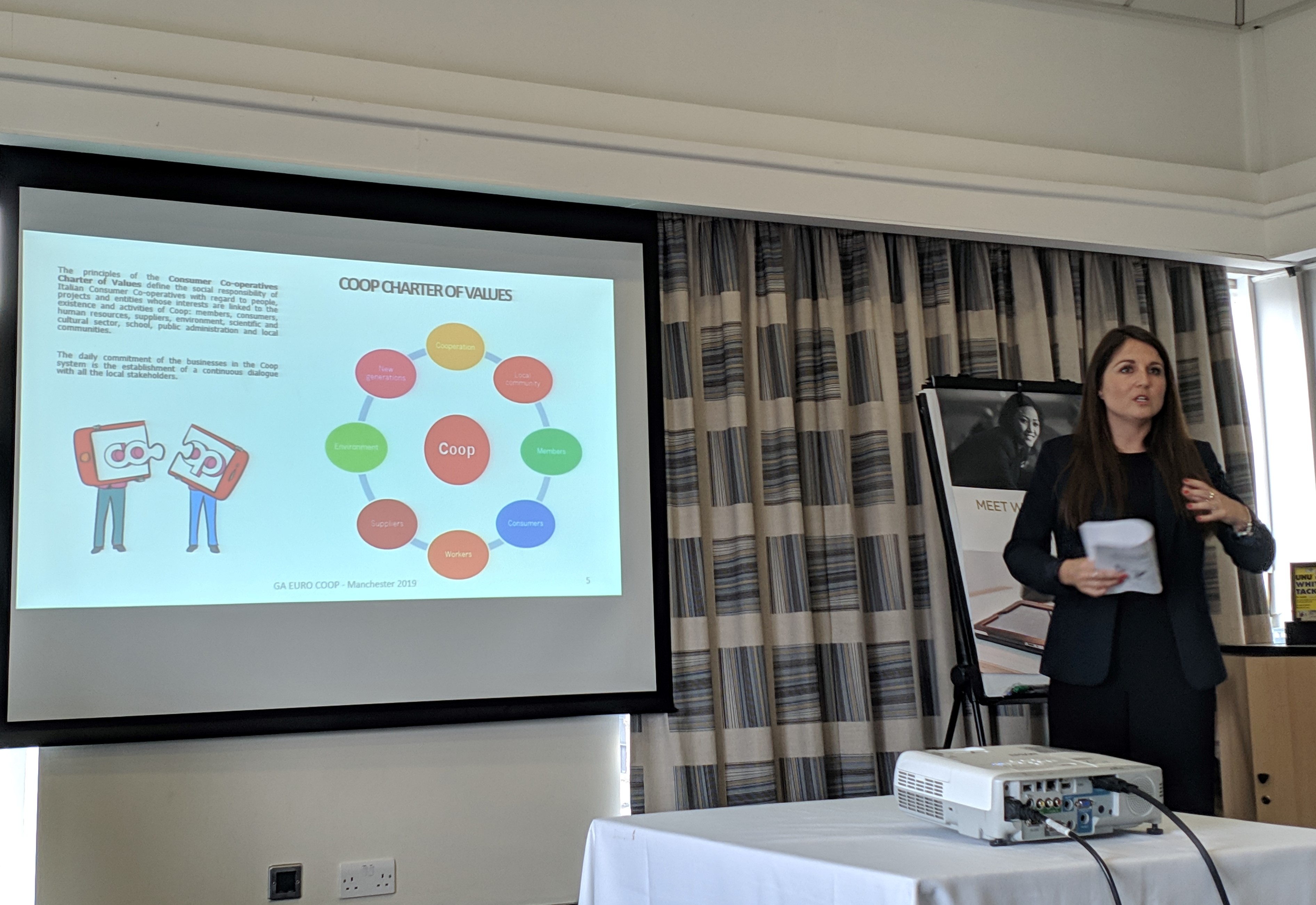 The last two presentations were dedicated to ANCC/Coop Italy’s report on the value of consumer co-operatives and Co-operative Sweden’s Code of Co-operative Governance. As such, the two provided different scenarios for the future development of a potential Euro Coop Code of Co-operative Governance. Both documents revolve around co-operative governance, but the difference is that while the Italian report exemplifies the value generated for members and society, the Swedish Code is a document clearly providing a frame of guidelines for co-operatives to follow in their governance so as to generate the benefit.
The last two presentations were dedicated to ANCC/Coop Italy’s report on the value of consumer co-operatives and Co-operative Sweden’s Code of Co-operative Governance. As such, the two provided different scenarios for the future development of a potential Euro Coop Code of Co-operative Governance. Both documents revolve around co-operative governance, but the difference is that while the Italian report exemplifies the value generated for members and society, the Swedish Code is a document clearly providing a frame of guidelines for co-operatives to follow in their governance so as to generate the benefit.
In short, the former focuses on the end result, while the latter emphasizes the process.
Euro Coop is intent on publishing a report which could be either a compilation of best practices across Europe’s consumer co-operatives in generating value for members and society, or an actual Code with guidelines for implementing the co-op principles and values. The two presentations were very helpful for the members to discuss which one of the two directions Euro Coop should take.
First-person Co-operation
Following the meeting, members had the great opportunity to make field visits to two stores of the Co-operative Group. The first was a specialized testing location for new store concepts and the second was a new food-to-go format. These visits are an additional opportunity for members to discuss retail successful practices, but in a more interesting environment – onsite, as opposed to around the table.
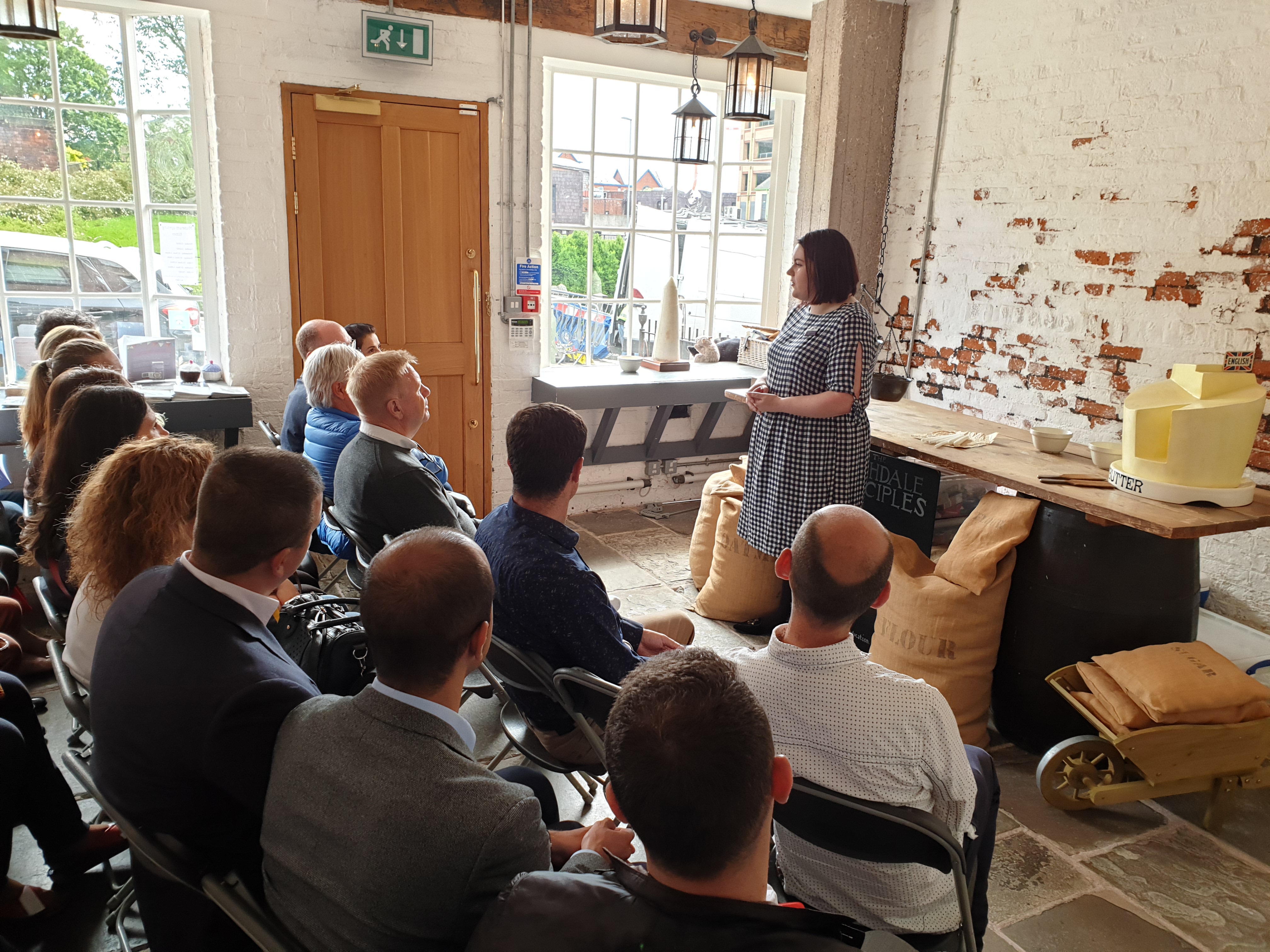
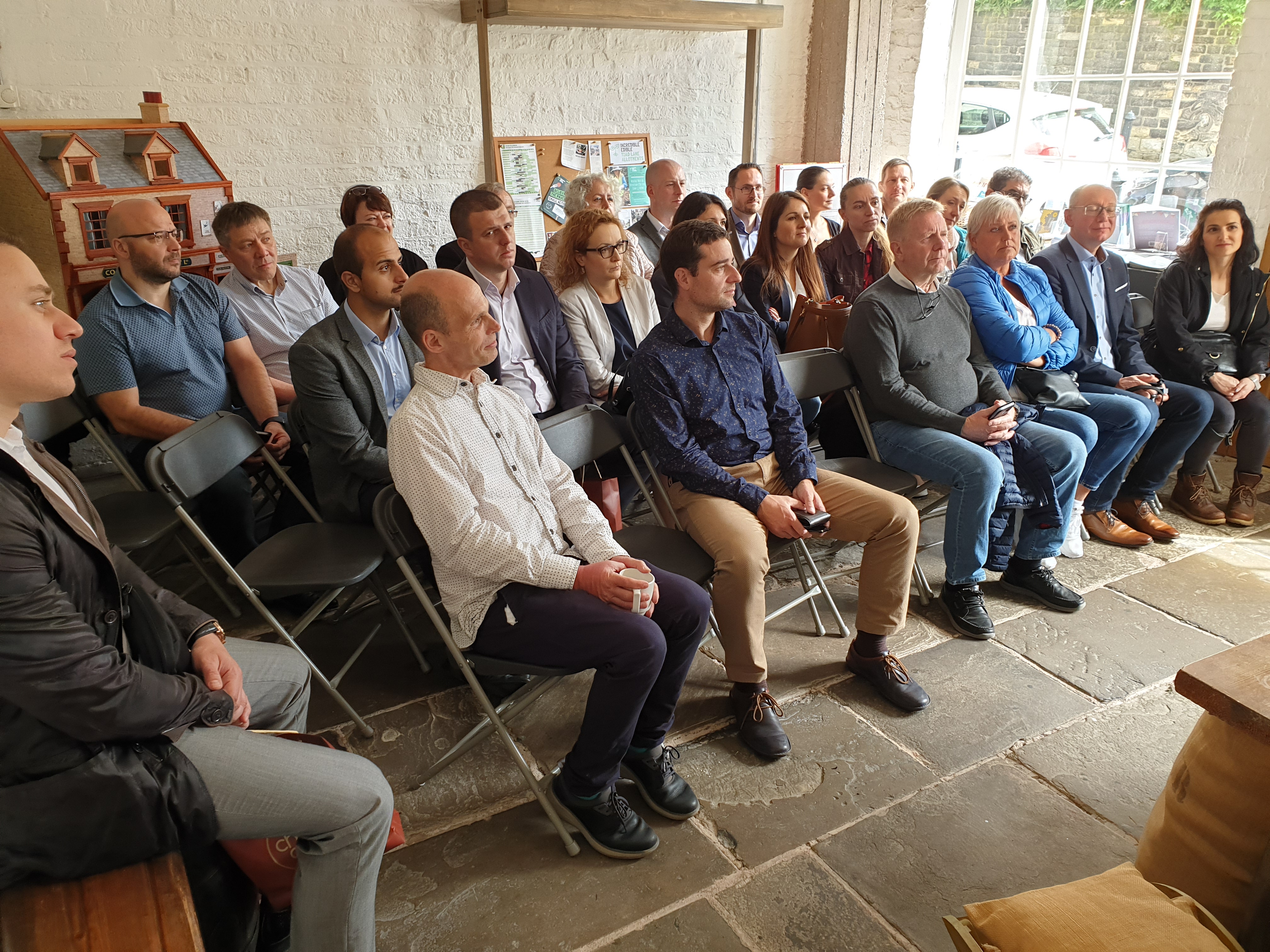
The program’s second included a visit to the co-operative mecca – the Rochdale Pioneers Museum. It is on this ground that the modern co-operative movement begun in 1844 with the opening of a store on Toad Lane. Members received an insightful lecture about the history of the Pioneers and, more importantly, the challenges they encountered in the early days prior to their eventual becoming a dominant force on the UK retail market. The Co-operative Group, today, is a direct successor of that store 175 years ago – what an incredible story!
Euro Coop’s official program ended with the Rochdale visit, but members were invited to attend the UK Co-op Congress, where Mathias Fiedler - Euro Coop President was a special guest with a special mission.
You can read all about it here.
Latest Reports - Memos news
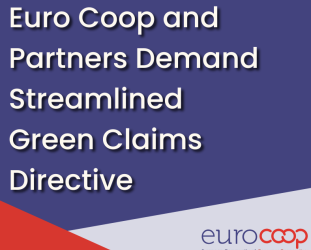
Euro Coop and Partners Demand Streamlined Green Claims Directive
Brussels, 23 April 2025 – Euro Coop, together with HOTREC and Independent Retail...

Safeguarding the Single Market: Joint Call to the European Parliament on Cross-Border Enforcement of UTPs
Brussels, 22 April 2025 – Euro Coop and Independent Retail Europe have sent a joint...
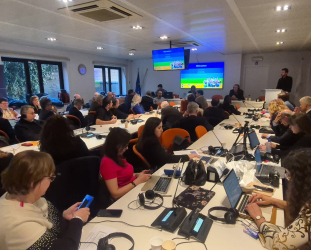
Cooperatives Driving Change: Key Events in Brussels, March 2025
As part of the International Year of Cooperatives, a series of impactful events took place in...
Latest Reports - Memos stories

Coop Norway’s discount chain, Extra, receives prize for healthy marketing and celebrates with additional discount on fruit and vegs
Coop Norway’s discount chain, Extra, has been recognized for its commitment to healthier...

Coop Private Label Products Shine at the 2025 European Private Label Awards
The 2025 European Private Label Awards have celebrated the achievements in store brand...

Empowering Consumers for a Sustainable Future: An Interview with HISPACOOP for World Consumer Day
On the occasion of World Consumer Day, we highlight the essential role of consumer...

